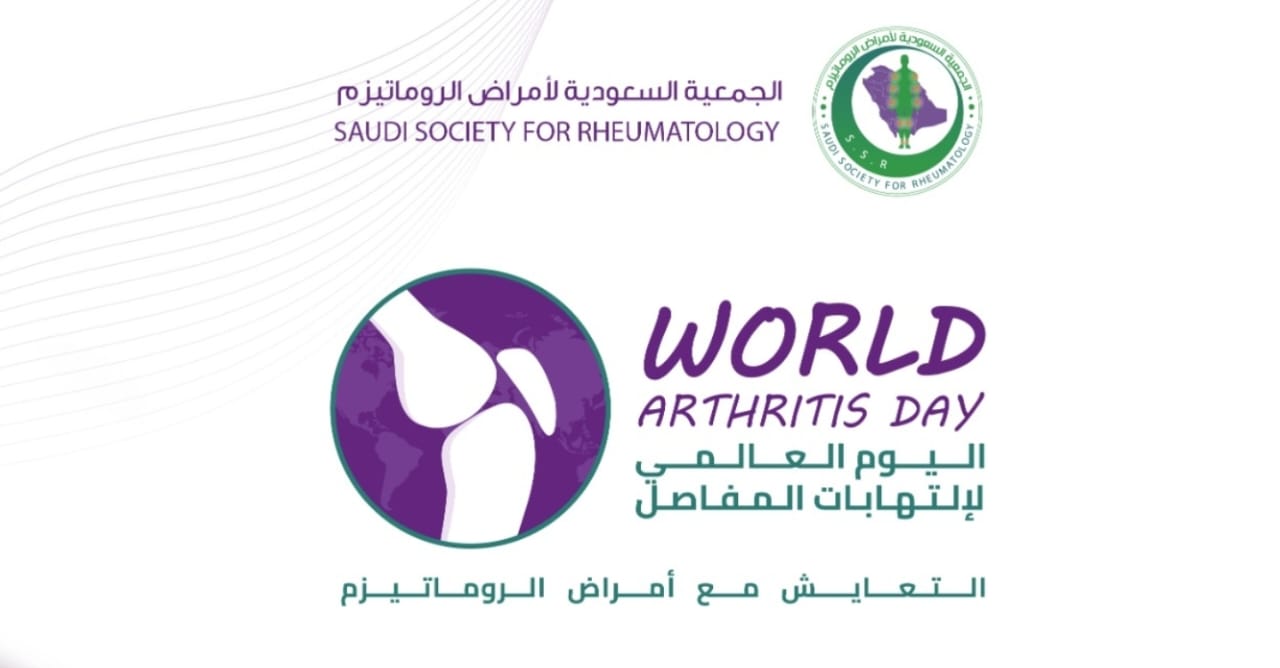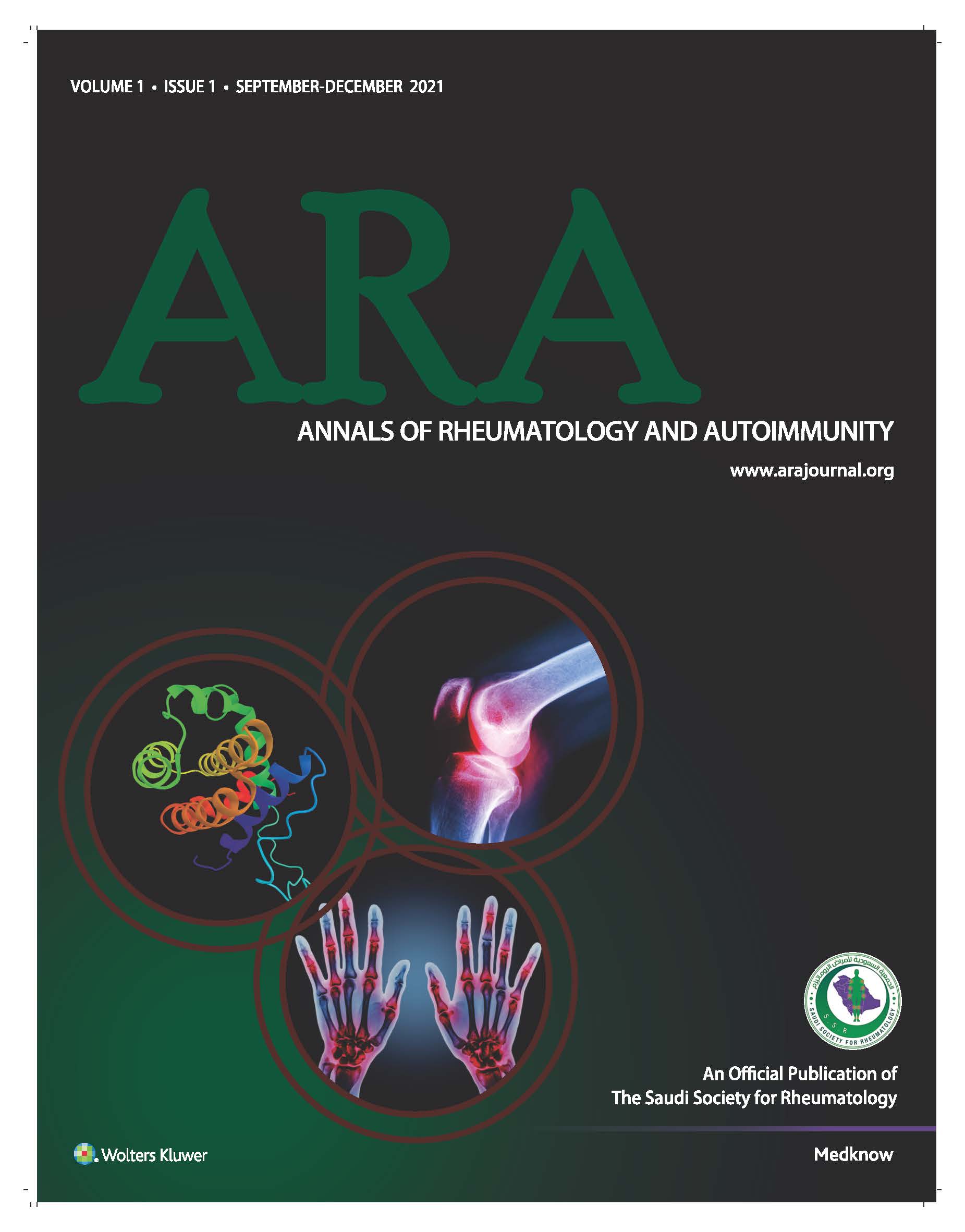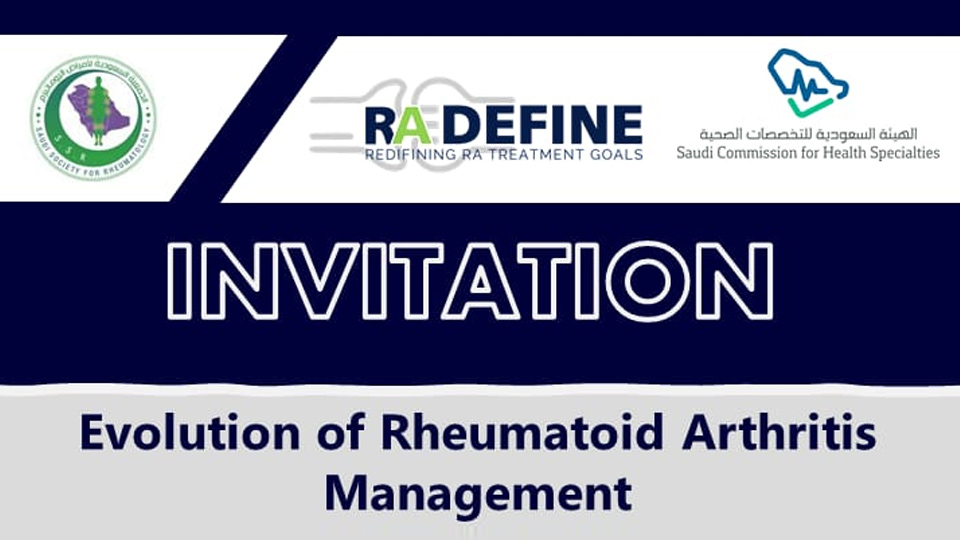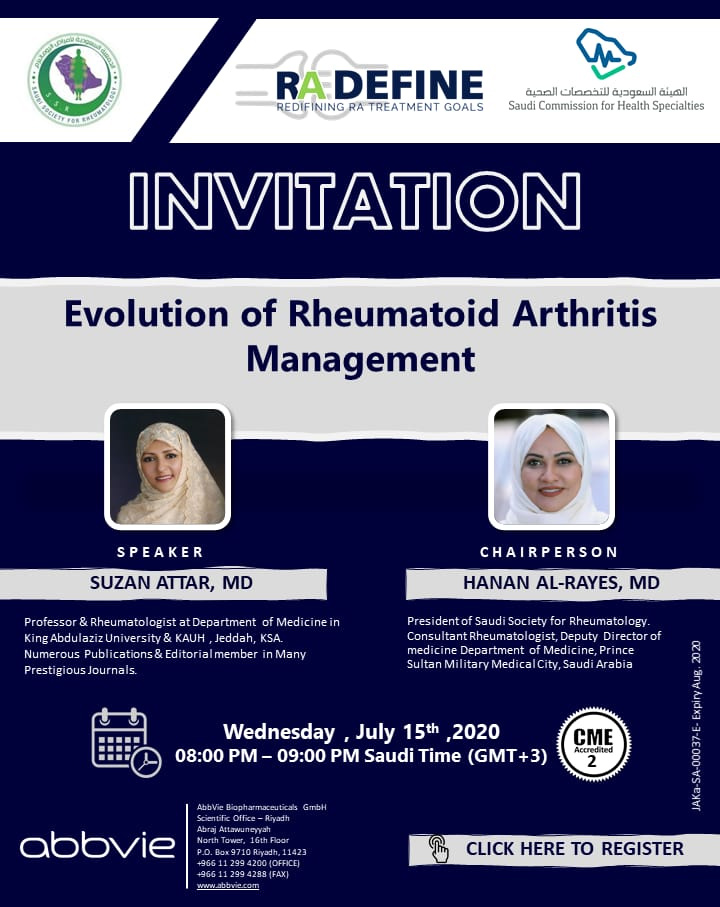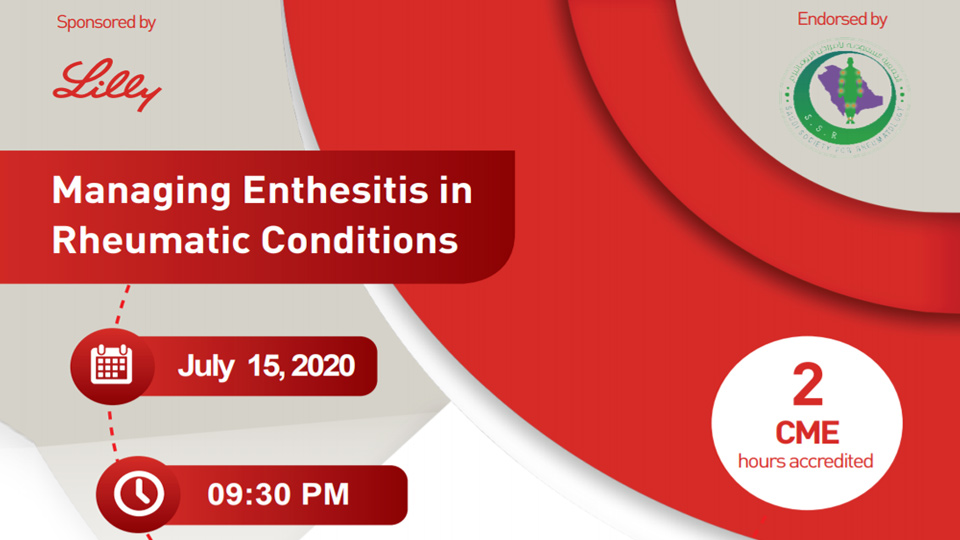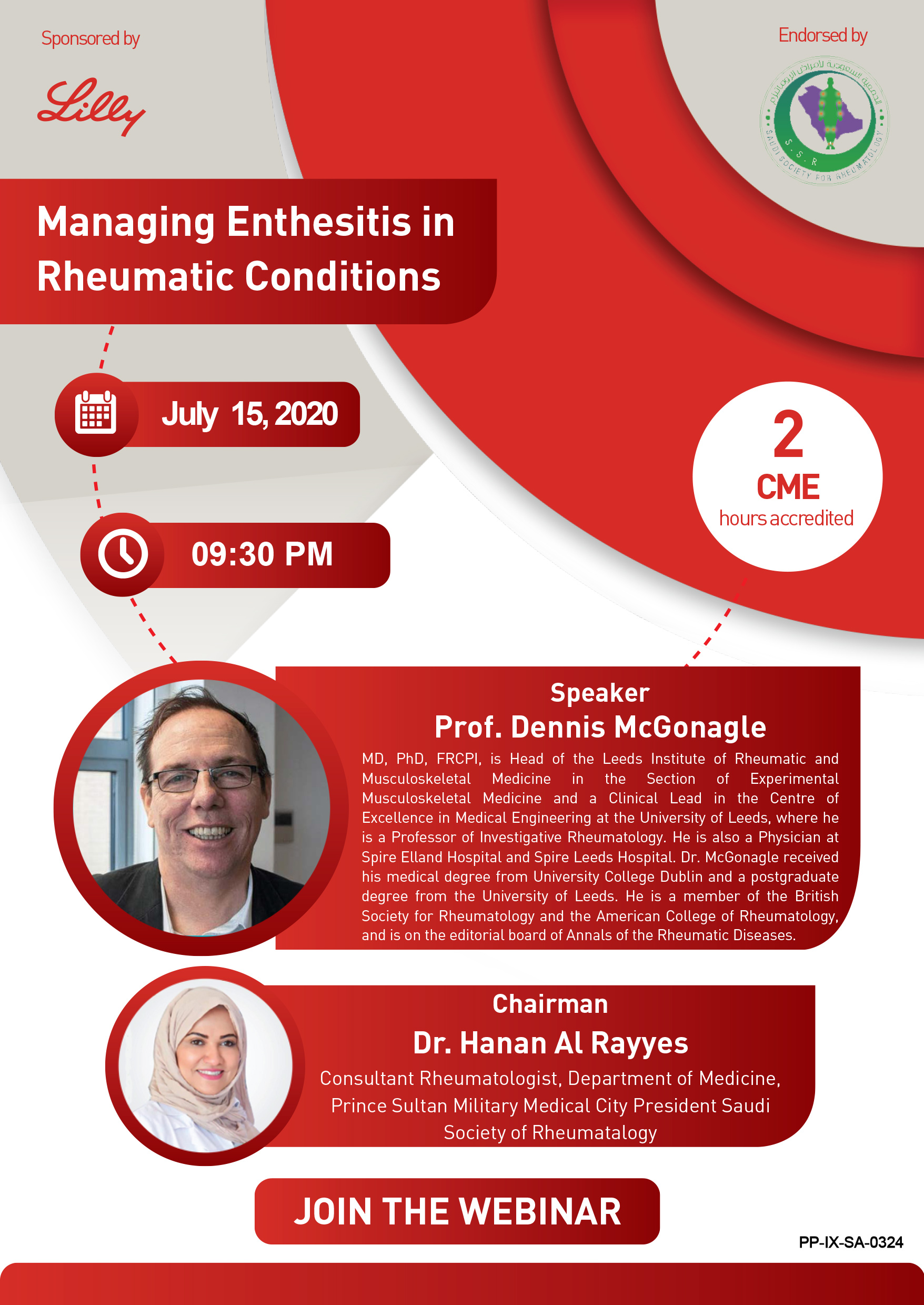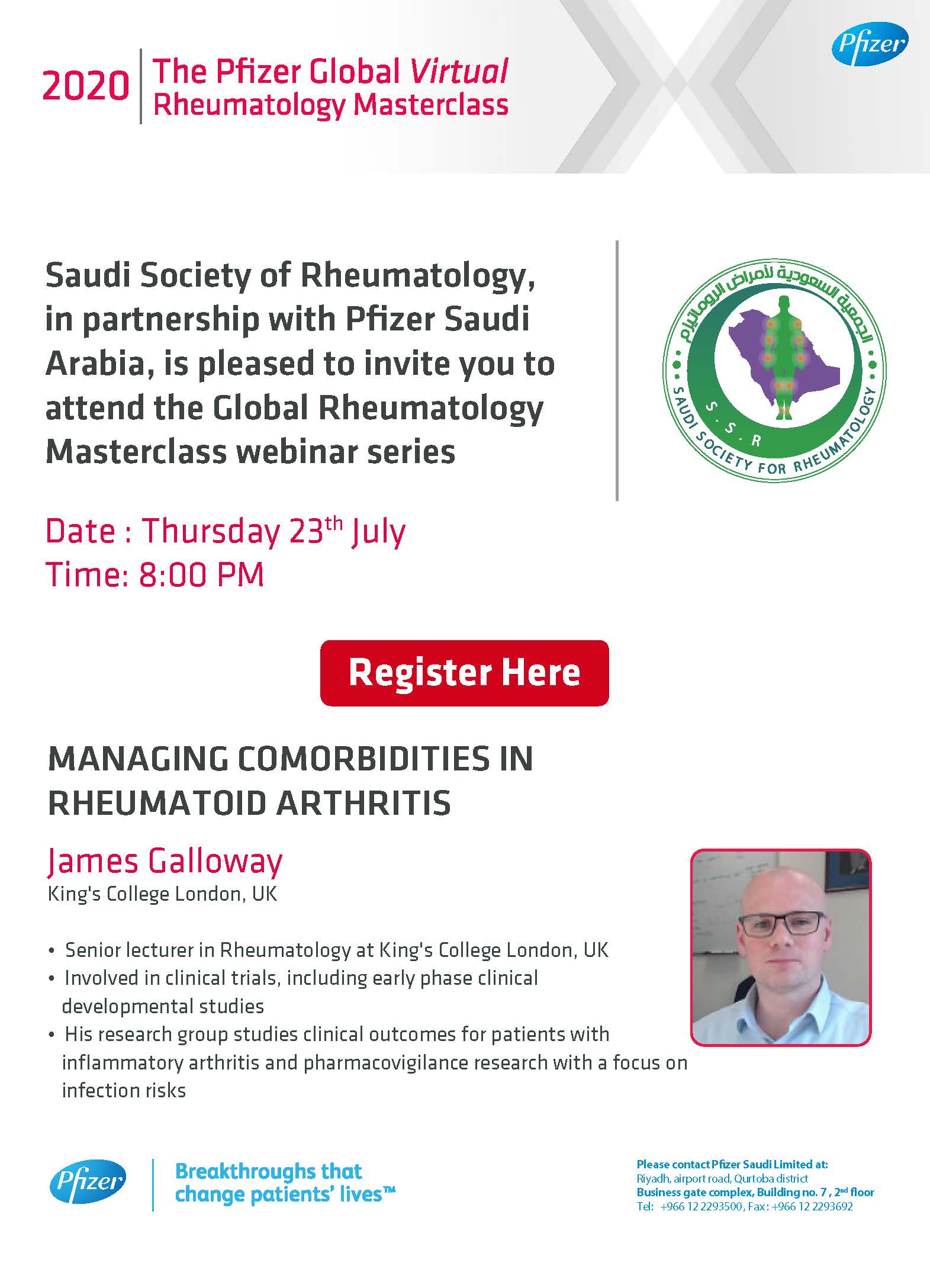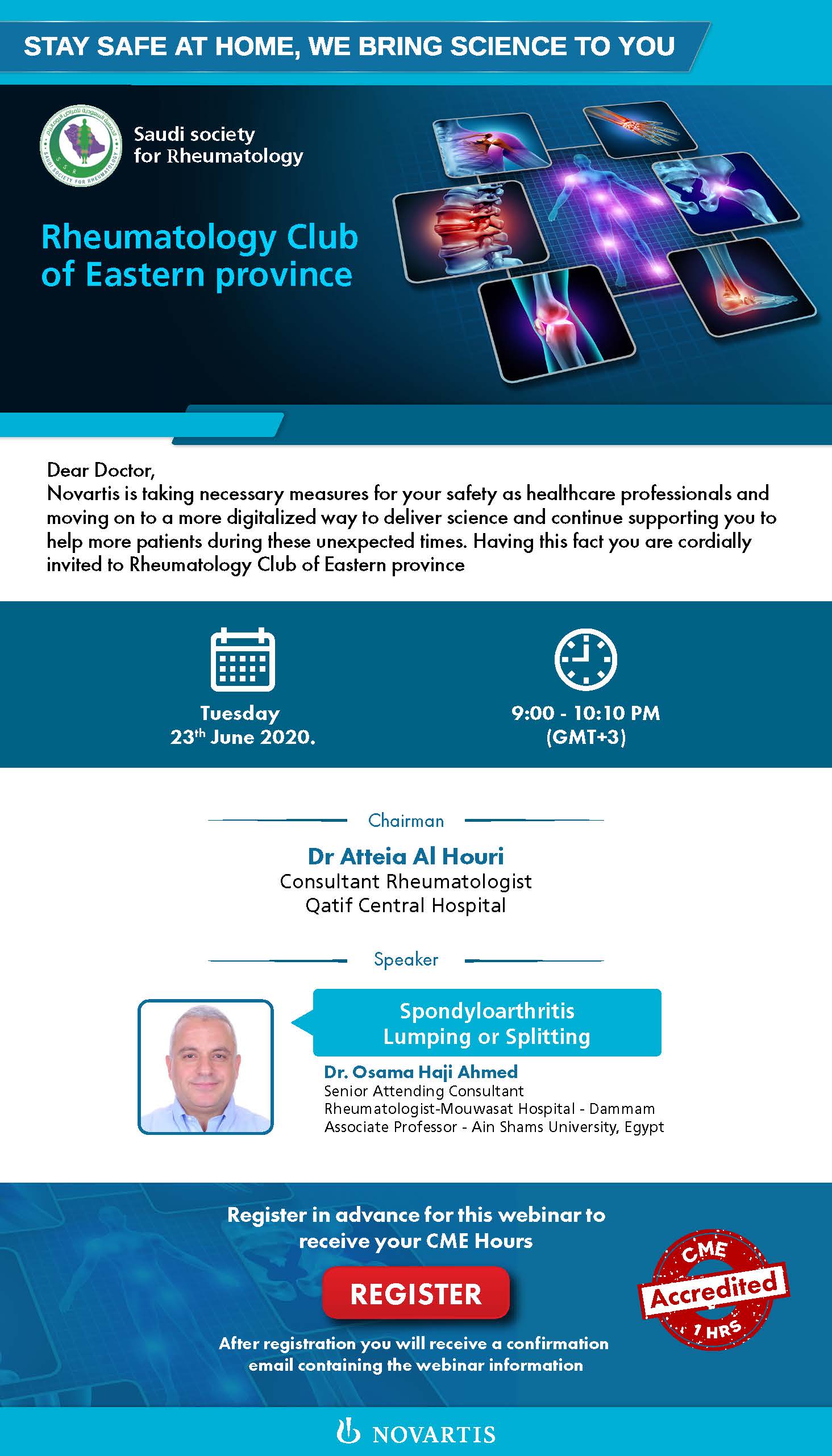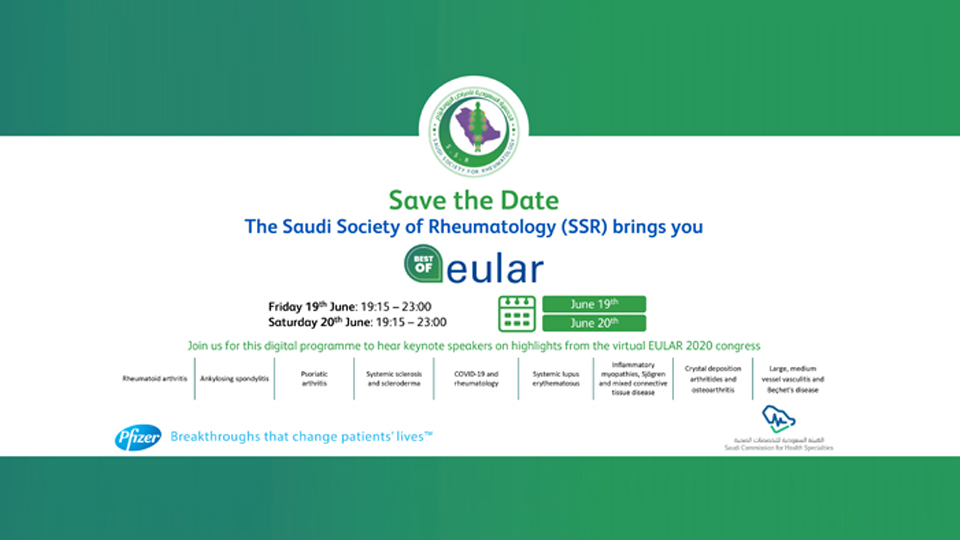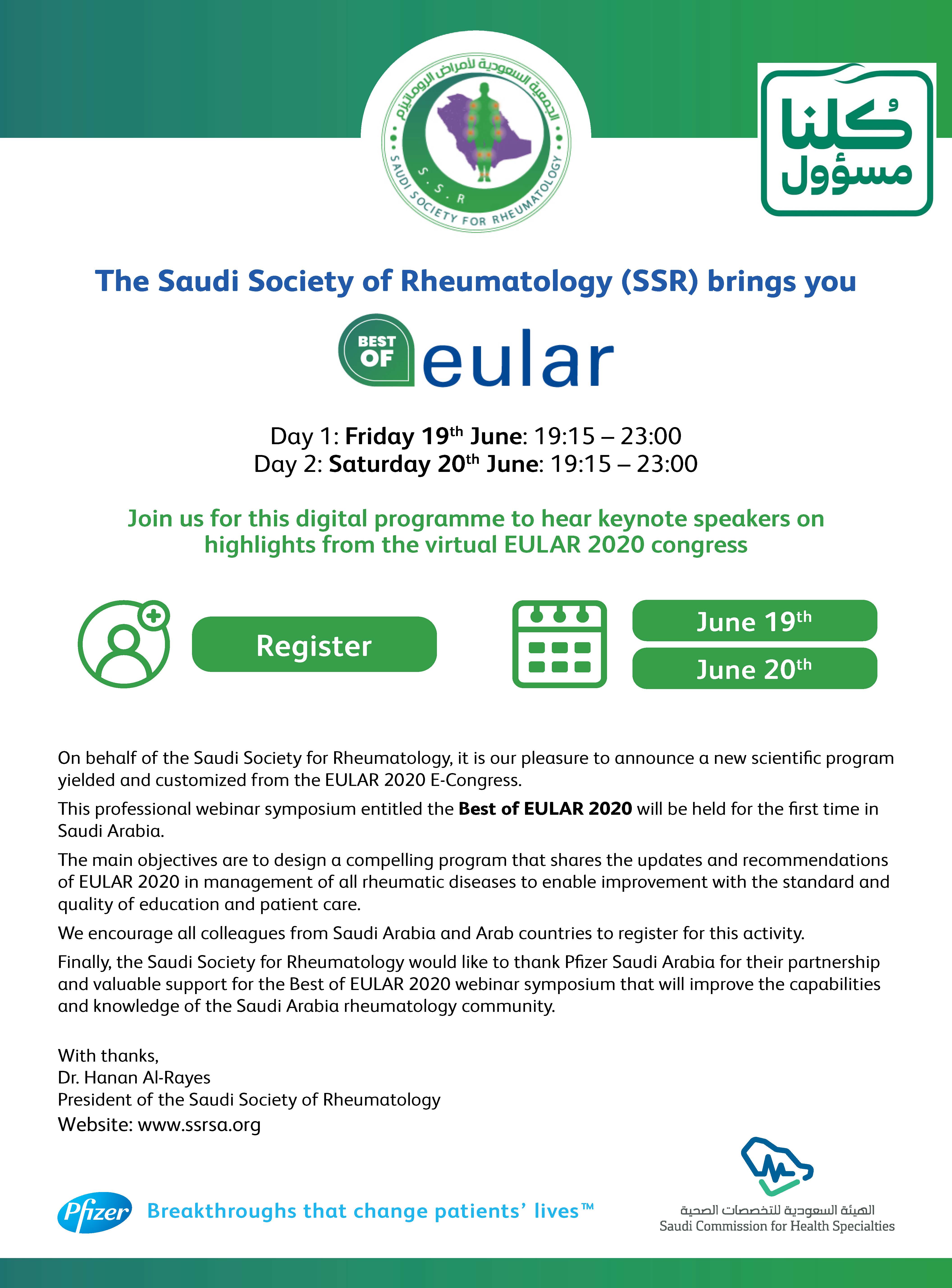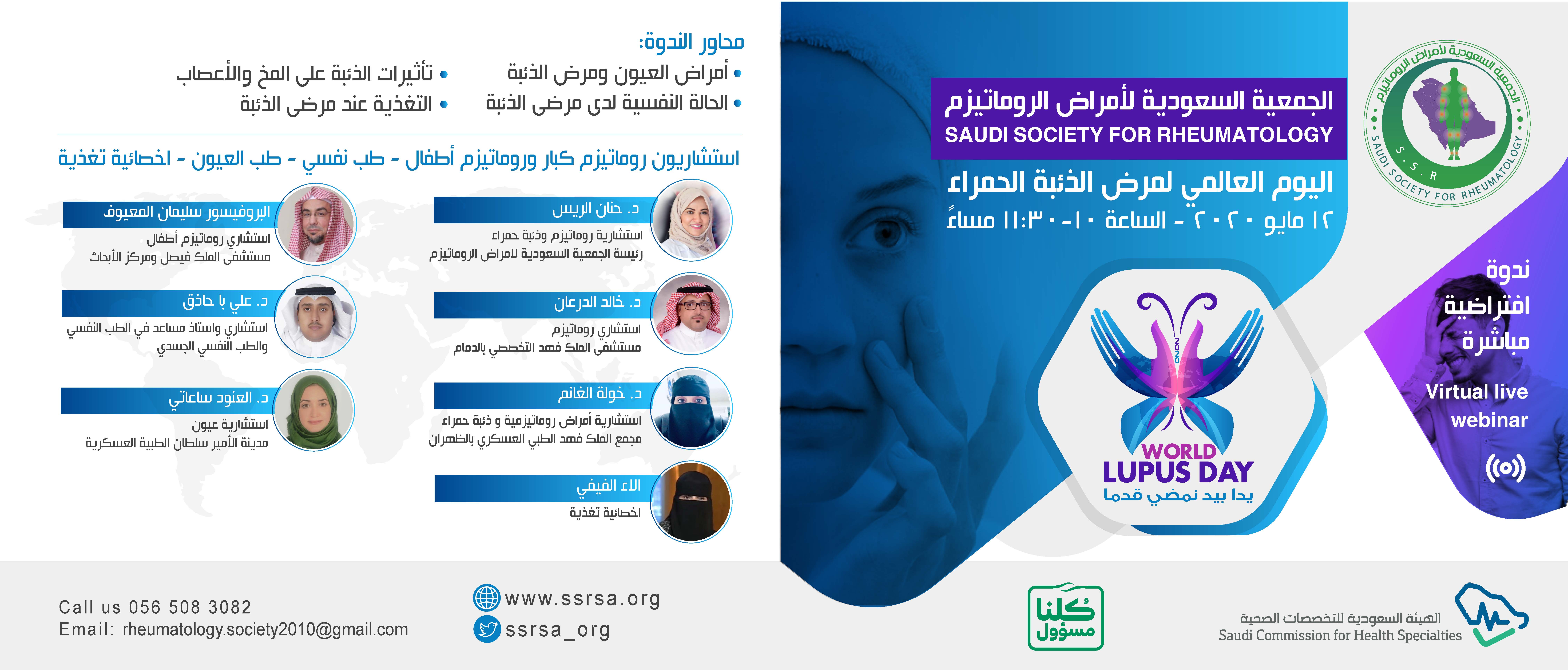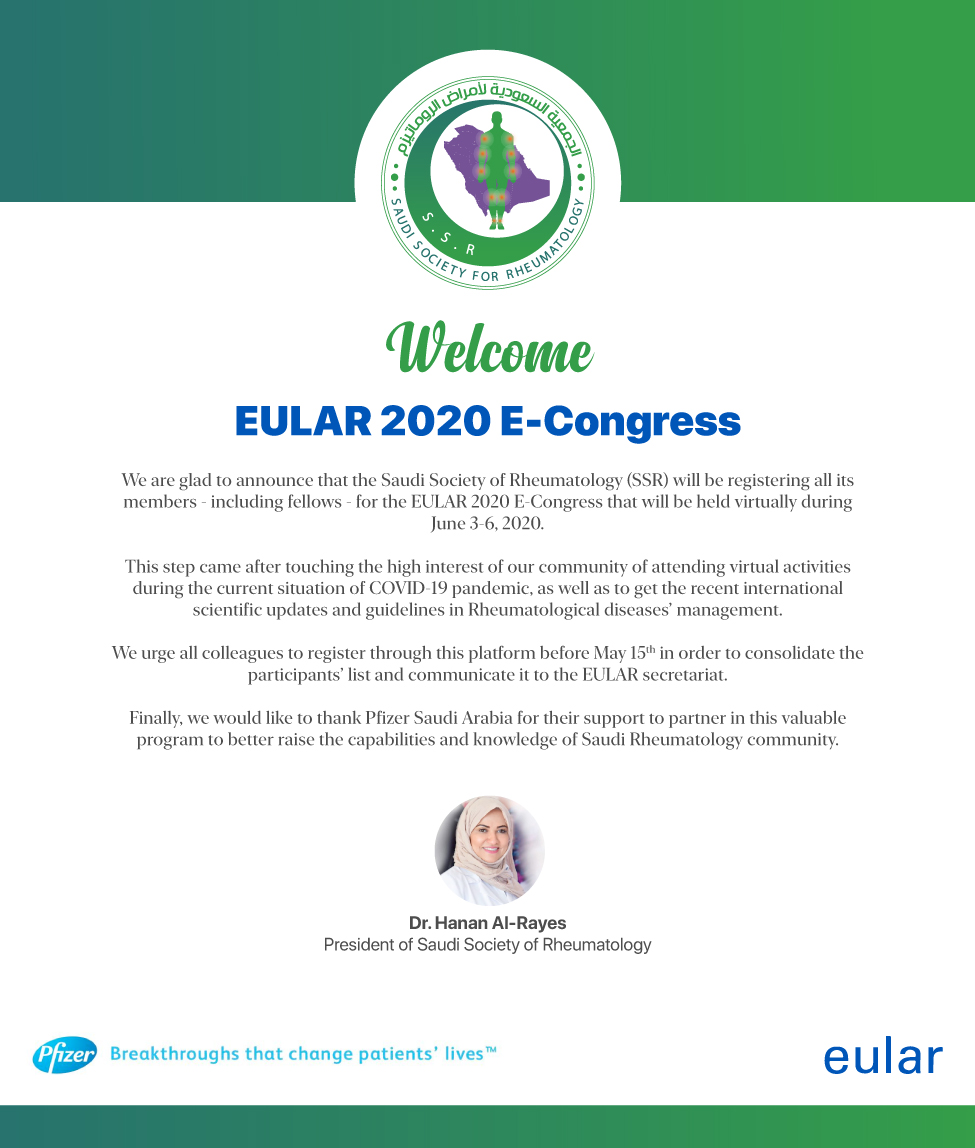
Click To View File
Hanan M. Al Rayes1 & Mohammed A. OmairReceived: 26 January 2021 /Revised: 26 January 2021 /Accepted: 28 January 2021
# International League of Associations for Rheumatology (ILAR) 2021
There is a need to develop real-world evidence in Saudi Arabia that will inform clinical and research agendas. The Saudi Society for Rheumatology (SSR) has launched in 2018 the Saudi Arthritis Registry (SAR), a national prospective longitudinal registry. SAR covers different disease areas with rheumatoid arthritis (RA) being the prototype. Spondyloarthritis, systemic lupus erythematosus, systemic vasculitides, juvenile idiopathic arthritides and scleroderma spectrum diseases tracks are in progress and will be launched soon. At the time of this writing, 525 RA patients were recruited by 10 sites from 4 province, with 2420 visits. The expected expansion over 3 years is 30 centres recruiting over 4000 patients.
Clinical care improvement agenda
The data entered will help SSR to explore the characteristics of the Saudi/Arab population, observe practice, monitor synthetic and biologics disease-modifying antirheumatic drugs (DMARDs) outcome and adverse events and disease complications/comorbidities and estimate mortality. Previously most information were acquired through crosssectional studies and retrospective studies (1–4). The registry output will be benchmarked to international data. This will identify areas of improvement and features specific to our patients. SAR will complement reported safety data from post-marketing studies and local and international pharmacovigilance databases.
* Mohammed A. Omair momair@ksu.edu.sa
* Mohammed A. Omair momair@ksu.edu.sa
Rheumatology Unit, Department of Medicine, Prince Sultan Military
Medical City, Riyadh, Saudi Arabia
Rheumatology Unit, Department of Medicine (38), King Saud
University, PO Box 2925, Riyadh 11461, Saudi Arabia
Research agenda
The registry will foster collaboration between investigators around the country that will lead to higher research quality and increase in the number of publications. Projects that evaluate rare diseases or complications would only succeed in the setting of a large sample size provided by the registry. Finally, fellows and residents will have more opportunities to participate in projects during their training that will enhance their research skills and pave future academic career. As an active member of the Asia Pacific League Against Rheumatism and the Arab League Against Rheumatism, SSR aims at expanding its efforts to the Middle East and Asia Pacific regions through collaborative network with other registries and cohorts.
Challenges
The development and preservation of the registry has passed through many challenges including funding, recruitment and maintaining quality of data. The SSR is supported by grants and funds that are predominantly from pharmaceutical companies. Financial sustainability is one of the society’s top priority strategies. Also, the number of rheumatologists with academic interest is low, and most of them are running a clinical practice in governmental or private setting. This has led to paucity of research production from the Saudi rheumatology community with even fewer being of high quality. Finally, the busy practice and lack of incentives might be an obstacle in recruiting patients and ensuring quality data. These issues were managed by developing a user-friendly online system that enables busy rheumatologists to participate and include patients. Additionally, the SSR is supporting centres through funding research assistants for data entry. SSR organised a research committee to help in developing and analysing studies, which will relieve these burdens from collaborating rheumatologists.
The launching of SAR is a great step forward in the field of rheumatology in Saudi Arabia with many challenges and opportunities and will require support and contribution from physicians around the Kingdom.
Disclosures None.
References
1. Omair MA, AlDuraibi FK, Bedaiwi MK, Abdulaziz S, Husain W, El Dessougi M et al (2017) Prevalence of HLA-B27 in the general population and in patients with axial spondyloarthritis in Saudi Arabia. Clin Rheumatol. 36(7):1537–1543
2. Omair MA, Omair MA, Halabi H (2017) Survey on management strategies of rheumatoid arthritis in Saudi Arabia: a Saudi Society for Rheumatology Initiative. Int J Rheum Dis 20(9):1185–1192
3. Al Arfaj AS, Khalil N, Al SS (2009) Lupus nephritis among 624 cases of systemic lupus erythematosus in Riyadh. Saudi Arabia. Rheumatol Int. 29(9):1057–1067
4. Al-Rayes H, Al-Swailem R, Arfin M, Sobki S, Rizvi S, Tariq M
(2007) Systemic lupus erythematosus and infections: a retrospective study in Saudis. Lupus. 16(9):755–763
Publisher’s note Springer Nature remains neutral with regard to jurisdictional claims in published maps and institutional affiliations.



